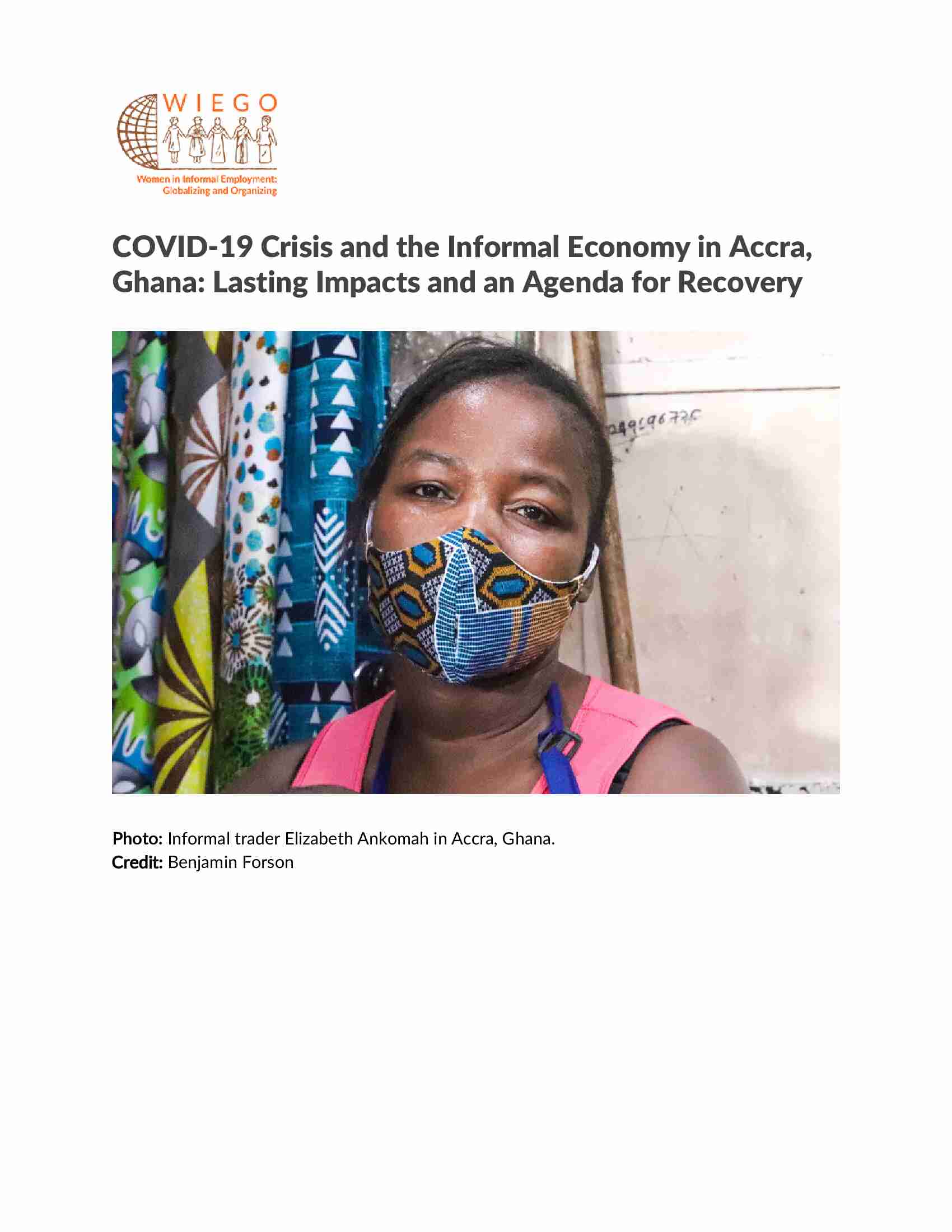COVID-19 Crisis and the Informal Economy in Accra, Ghana: Lasting Impacts and an Agenda for Recovery
Informal workers in and around Accra’s markets – street vendors, market traders and kayayei – provide affordable goods and services and form the foundation of Accra’s commercial life. This report presents the Ghanaian capital's findings from Round 2 of the WIEGO-led COVID-19 Crisis and the Informal Economy study that was conducted in mid-2021 to assess how specific groups of informal workers and their households were experiencing COVID-19 resurgences and ongoing economic strains, and to what extent (if any) they had recovered.
Key Findings
No recovery, no relief: Informal workers in Accra are working fewer days and earning less than before the pandemic. By mid-2021, the median monthly earnings of workers in all sectors were only one-third of their pre-COVID earnings. They are facing new obstacles to working and earning, especially related to lack of customers, rising prices and increased competition. The government has provided no cash grant relief for informal workers to help rebuild capital and cope with losses.
Food insecurity is rising: Rather than improving, food insecurity has increased since last year. 44% of workers are reporting adult hunger in the household and more than half reported skipping a meal or eating a smaller variety of foods in the past month. Despite high levels of food insecurity, only 5% received food relief from the government. Food insecurity levels are most severe for the kayayei –100% of kayayei reported incidents of adult hunger.
Assets have been eroded: More than half of workers reported drawing down savings as a coping strategy, and 92% were unable to rebuild at least half of savings lost. Half of workers reported borrowing money to cope.
View list of all: City/Country Level Reports

